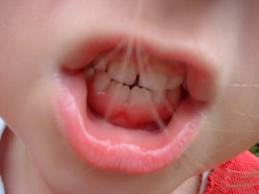You may have a child starting school for the first time this year and everything is changing! Your little baby is now in big school and you are dealing with all the adjustments related to this new phase of your family’s life.
As you and your child begin to get settled into the routine of school, you may have questions related to your child’s speech and language. What is normal/developmental? When should I be concerned?
For starters, speech is acquired at different rates for different children. There is, however, a general pattern of acquiring speech sounds. As you have likely witnessed as your child has grown, he/she has made mistakes when beginning to acquire sounds. One thing most children do as they develop their speech is to make sound substitutions. Your child should have acquired most of his/her sounds prior to entering school so that they are easily understood. However, it is part of the normal course of development for some sound substitutions to remain. You may notice some difficulty with the following sounds:
· l- (e.g., “wight for “light).
· s/z – This can occur when there is a substitution of s/z with th. This is often referred to as an inter-dental or frontal lisp. This substitution can happen at the beginning, end and middle of words (e.g., “thaw” for “saw”, “methy” for “messy”, “buth” for “bus”, “thoo” for “zoo”, “fithy” for “fizzy” and “buth” for “buzz”).
· r- The “r” sound is one of the most difficult sounds to produce. Your child may substitute “r” with “w” (e.g., “wabbit” for “rabbit”). However, there are many other combinations of “r” that your child may have difficulty with producing. These are the “r” vowels and include “ar” (e.g., as in “car”), “air” (e.g., as in “fair”), “ear” (e.g., as in “fear”), “er” (e.g., as in “person”), “or” (e.g., as in “for”), “ire” (e.g., as in “tire”). Due to the variations in this sound, ages of correct production may vary.
· v – A common substitution is “b” for “v” (e.g., “bery” for “very”).
· ch – A common substitution is “sh” for “ch” (e.g., “wash” for “watch”).
· sh- A common substitution is “s” for “sh” (e.g., “sut” for “shut”).
· th – There are two different sound that “th” makes. The first one is a ‘soft’ “th” as in the word “thin”. A common substitution is “f” for “th” (e.g., “dumb” for “thumb”). The second one is a ‘hard’ “th” as in the word “that”. A common substitution is “d” for “th” (e.g., “dis” for “this”)
The following chart outlines when you should see mastery of sounds in conversation. This is merely a guideline, and can vary depending on the individual child.
|
Age |
Sounds Acquired |
|
3 |
m,n,h,w,p |
|
4 |
b,t,d,k,g,f |
|
5-6 |
v,j,s,l,r |
|
7 |
z,ch,sh,th |
Source www.caslpa.ca
It is important that we look at each of our children individually. We need to consider how our child’s speech errors are affecting his/her ability to be understood by others as well as any impact that may be occurring with reading, writing and social development.
Another area a Speech-Language Pathologist may look at is language. Language is both expressive and receptive. Expressive language refers to how we use our words and how we use these words to make phrases, sentences and conversation that are grammatically correct. Receptive language is how we understand language and can involve skills such as responding to questions and following directions. As with speech sound development, each child develops individually but, generally, you should notice that your child is able to do the following by 5 years of age:
• Is able to explain and understand first, second, third (i.e., time sequence)
• is able to follow 2-3 step directions (take your shoes off, put them in your locker and sit at your desk)
• Is able to produce and understand rhyming words
• Begins to use more complex sentences
• Begins to use his/her imagination when telling stories
It cannot be stated enough that each child’s development is individual and that the presence of a delay or disorder is reliant on many factors. As such, this information is presented as a guideline only. If you have specific concerns, please contact a certified Speech-Language Pathologist.
If you have a child beginning school this year, it is a time filled with much pride, anxiety, excitement and many other emotions. Have a great year!!
Carolyn Dougan is a certified Speech-Language Pathologist who lives and works in Halifax. She is a mom of three kids under 6 and a wife who loves fresh morning coffee, good take out and great conversation.
Sources: Canadian Association of Speech-Language Pathologists (www.CASLPA.ca) American Speech-Language-Hearing Association (www.ASHA.org)

